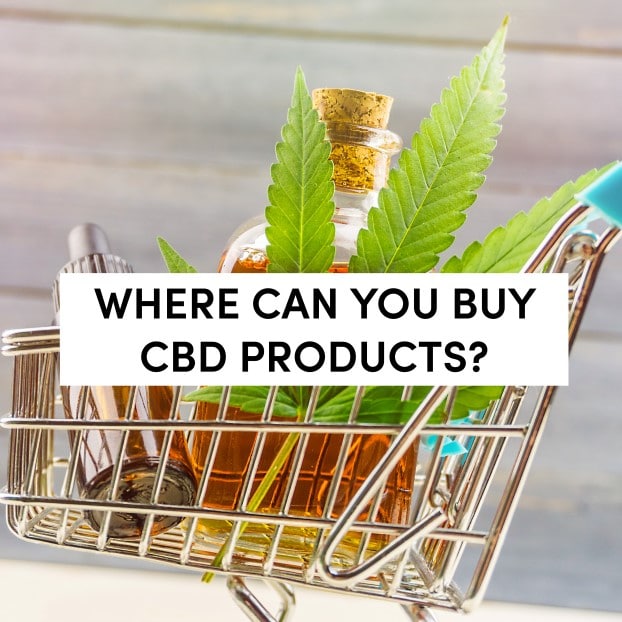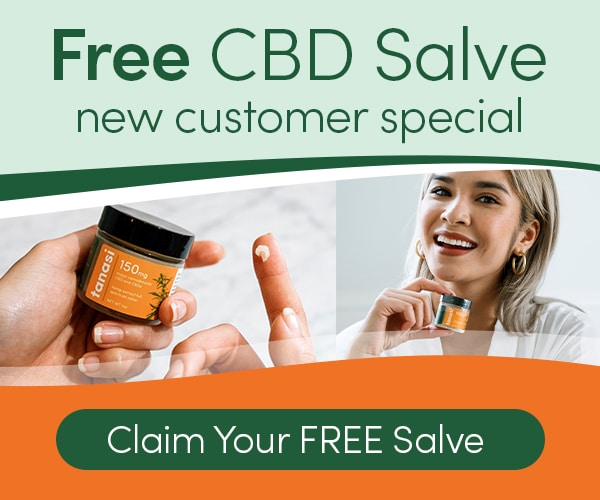Do Drug Tests Test For CBD? A Closer Look

Posted on May 7th, 2021
CBD or cannabidiol recently rose in popularity for its perceived anti-anxiety, anti-inflammatory, anti-seizure, and pain-alleviation properties. It comes in numerous presentations, including edibles, tinctures, oil, lotions, etc. You can now find it in almost every health and wellness store in the country. However, with its popularity and given it comes from the same plant as THC, there have been concerns about the CBD showing up in drug tests. But do drug tests test for CBD? In this read, we are going to delve deeper into this, but first:
What are Drug Tests and How Do They Work?
A drug test is a process used to screen for prior or current drug use. The participants provide a sample from their body, be it blood, hair, or urine. The process then searches for specific chemicals or substances related to a certain drug. If the test detects the substance, then the test is positive. The accuracy of these tests depends on the substance tested and the test used. Marijuana tests, for example, are pretty common and so extremely accurate.
Generally, a drug test requires you to submit a urine sample in a lab. Later on, you need to also provide a clean-catch sample, which entails the following:
- Wash your hands.
- Clean the genital region with a cleansing pad provided at the lab.
- Begin to urinate and collect at least an ounce of urine into the provided container.
- Finish up and return the container with the sample to the lab technician.
In some situations, a medical technician may have to be present as you turn in the sample.
Blood samples are a bit different. You’ll go to the lab, and the practitioner will collect a blood sample from your arm. You may feel a small sting during the injection, but the process takes just a few minutes.
Who Asks for Drug Tests?
Drug testing is a way to find out if an individual consumed certain drugs. The following fields employ them extensively:
- Employment- employers sometimes need to test you before or after hiring in order to assess on-the-job drug consumption.
- Health Care Providers- If your doctor prescribed an opioid for chronic use, they might have to conduct a drug test to ensure you’re consuming the right dose.
- Sports Organization- Athletes, especially professional ones, are mandated to take drug tests to ensure they are not using performance-enhancing substances.
- Forensic or Legal Purposes- Drug testing can ideally be a part of an auto accident or criminal investigation. Also, they might be mandatory as part of a case in court.
How Can Drug Tests Give a False Positive?
There are many factors that can lead to a false positive drug test. These include:
1. Mixing up Samples
It is certainly possible for it to be a mixup at the collection site through improper sealing and failure to label the samples when collected.
2. Improper Lab Procedures
Labs must follow stringent, quality-controlled procedures when it comes to handling samples and conducting chemical analysis on them. Failure to observe the best practices can potentially ruin samples, leading to erroneous results.
3. Accidental Exposure or Passive Inhalation
Some individuals become exposed to some substances by simply being around those who do use them. A possible example is sitting next to a person smoking marijuana and end up testing positive for THC.
4. Extremely Low Cut-Off Levels
In drug testing labs using extremely low cut-off levels, accidental or incidental exposure to the substances gives a false positive. An example is consuming poppy seeds or passive smoking marijuana, leading to a false positive for morphine or THC.
5. Cross Reactants
Some compounds usually have structures that are extremely similar to the drug an individual undergoes testing tested for. As a result, there’s misidentification, and the result reported erroneously as positive. Some of the substances that result in cross-reactivity include:
- Poppy seeds
- OTC drugs
- Melanin
- Ibuprofen
- Antibiotics
- Antidepressants
- Pain relievers
If a drug test comes back positive and the donor admits to using the substance, there will be no need for additional tests. However, if the donor denies the positive result, a confirmatory test then takes place, often Gas Chromatography-Mass Spectrometry (GC/MS).
What are Cannabinoids?
These are a class of active compounds that bind or interact with the cannabinoid receptors located throughout the body, with the aim of maintaining homeostasis. These receptors are part of the endocannabinoid system or ECS, a complex signaling system responsible for a wide array of bodily functions, including immune response, mood, appetite, sleep, pain management, etc. Through their interaction with the CB1 and CB2 receptors, cannabinoids help the ECS maintain an array of processes that may allow for ideal health and wellbeing.
For the ECS to function properly, it requires an adequate level of cannabinoids. When there’s a lack of cannabinoids, some diseases and symptoms may develop, as the theory of clinical endocannabinoid deficiency suggests.
Where Do Cannabinoids Come From?
Cannabinoids are present in the following sources:
- Plants, particularly hemp and marijuana, are varieties of cannabis. These types of cannabinoids are ‘phytocannabinoids.’
- The body. These are naturally produced by the body and referred to as ‘endocannabinoids.’
- The lab. These are artificially created in the lab and referred to as ‘synthetic cannabinoids.’
Do Drug Tests Test For CBD? What is CBD?
CBD or cannabidiol is the second most abundant cannabinoid. While it’s an essential medical marijuana component, manufacturers actually source it from the plant’s cousin, hemp. Even though it’s a major component of marijuana, it is not psychoactive. This, meaning it does not cause the high experience from consuming weed. According to the World Health Organization (WHO), CBD does not show any effects related to abuse or dependence potential. Currently, there’s no evidence of health-related issues related to CBD consumption.
Effects of CBD
As mentioned above, CBD is known to affect the endocannabinoid system by interacting with the cannabinoid receptors. This results in a wide array of potential effects, many of which may be beneficial. These include:
Anxiety Relief – CBD might be able to change the manner in which the brain responds to serotonin, a hormone linked to mental health. As a result, it alleviates stress, induces sleep, and decreases anxiety’s physiological effects.
Neuroprotective – Research on the CB1 receptor and its interaction with CBD suggests the compound is a potential treatment for conditions like stroke, Parkinson’s disease, multiple sclerosis, Alzheimer’s disease, etc.
Pain Relief – CBD’s effects on the brain’s receptors also helps with pain management and modulates the body’s inflammatory response.
Anti-Acne – As CBD is also able to help with inflammation, and this, in turn, helps with acne management.
Anti-Seizure – Research also shows that the effects of CBD on the body can help reduce seizures. Moreover, actually led to the development of one FDA-approved drug based on the compound.
What Is THC?
Scientifically referred to as tetrahydrocannabinol, THC is the most prevalent cannabinoid in the marijuana plant. It is popular for several health benefits, but the most popular is its psychoactive effect. THC has mind-altering effects, which range from calming and relaxing to even cause panics, depending on the user’s state of mind.
Does CBD Make You High?
As earlier mentioned, even though extracted from both marijuana and hemp, CBD does not have any psychoactive effects. This makes it an excellent alternative for people looking to enjoy the potential health benefits of THC.
Do Drug Tests Test for CBD?
CBD derived from hemp is available in places where cannabis use for recreational use is illegal. However, some people still tend to worry whether or not the consumption of CBD products will show up on a drug test. Even in places where it’s legal to purchase and consume THC-rich cannabis, some companies still screen their employees for cannabis use. This is certainly a valid concern, given that all hemp-derived cannabidiol products are legally allowed to have traces of THC. However, that amount does not exceed 0.3% leaving consumers to wonder if said small amount might show up in drug tests.
So, Should You Fret About CBD Showing Up in a Drug Test?
More often than not, it is unlikely that cannabidiol will appear on a drug test. Most drug tests, especially those in the employment field, check for THC and THC metabolites. Most organizations follow the rules set by the Substance Abuse & Mental Health Services, including testing for THC and not CBD.
As such, the chances of a false positive are for THC and won’t happen unless you take excessive amounts of the product.
Do Drug Tests Test for CBD? – The Takeaway
Cannabidiol may come from either hemp or marijuana, but it should not show up on a drug test. However, it’s important to note that the industry is not consistently regulated. Thus, making it hard to fully know what you are getting when buying a cannabidiol-based product.
To avoid THC, make sure you are buying your CBD from a reputable source such as Tanasi.com. To answer the question, do drug tests test for CBD? No, they do not but make sure that you are getting a product with less than 0.3% THC.




